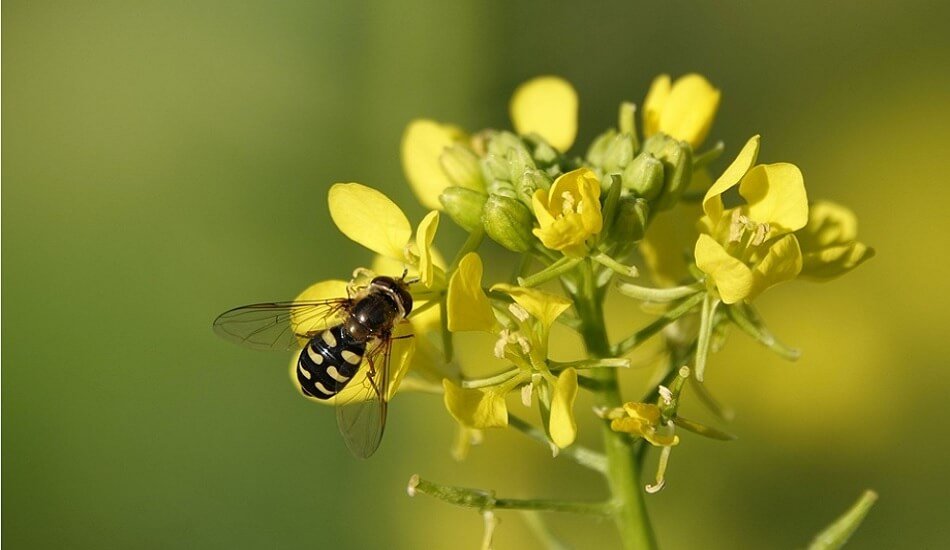GM mustard field trial shows safe for bees & higher crop yield: Minister
In a written response to a question, Union science minister Jitendra Singh said that field tests of the transgenic mustard variety DMH-11 showed that it produced more yield and didn’t stop honey bees from pollinating.
The Genetic Engineering Appraisal Committee (GEAC) just gave the go-ahead for Dhara Mustard Hybrid-11 (DMH-11) to be grown in farmer fields as a step toward commercial farming.
The Union’s environment ministry has given the GEAC, which is made up of experts, the power to judge the safety of genetically modified seeds. When Mr Singh talked about the safety and benefits of the seed in Rajya Sabha, it was the first time that a Central ministry had done so in Parliament. Bt cotton is the only other transgenic seed that can be grown commercially in India.
More Agri News | Stop release of GM mustard into environment, Doctors write to Prime Minister
The Center defended the GEAC’s approval of DMH-11 in front of the Supreme Court, which is looking into a petition from activist Aruna Rodrigues that questions the GEAC’s approval of DMH-11.
DMH-11 has been tested for three years against the national check Varuna and zonal check RL1359 in confined field trials at multiple locations. Mr. Singh said on Thursday that DMH-11 had about 28% more yield than the national check and 37% more than the zonal checks. Checks are used to compare mustard varieties in a certain area, and new varieties usually have to show that they are better before they can be sold commercially.
Field tests were done to see what would happen to people’s health and the environment, following the rules and guidelines that were in place.’Large-scale studies on the toxicity, allergenicity, compositional analysis, field trials, and environmental safety of GM mustard lines compared to their non-transgenic counterparts have shown that they are safe to grow and use for food and feed. ‘The data from the trials show that bees visit the transgenic lines in the same way they visit the non-transgenic lines,’ the statement said.
Studies done on Bt cotton showed that transgenics were safe for bees and pollination. Mr Singh said this was true. ‘Studies done in 2018-19 and 2019-20 showed that Bt transgenic cotton cultivars have no negative effects on bees, brood rearing, pollen, or nectar hoarding of Apis mellifera colonies compared to non-transgenic cotton cultivars,’ said Mr. Singh.
More Agri News | If govt approves GM mustard, agri women workers in rural may suffer – SC
In response to Parliamentarian Sushil Kumar Modi’s questions about why DMH-11, which has three foreign genes that make it good for making more hybrid varieties, wasn’t considered a ‘herbicide-tolerant’ seed even though it had the ‘bar’ gene, Mr. Singh said that farmers weren’t allowed to use herbicides and that they could only be used for ‘hybrid seed production.’ The plant’s ‘bar’ gene makes it resistant to herbicides that contain a chemical called glyphosate.
Herbicide tolerance in DMH-11 is one of the most controversial topics. Some activists say that this will make farmers more likely to use glyphosate, a weed killer, to protect mustard. Even though glyphosate is often used on tea plantations to save money on labor, it has been labeled a ‘probable carcinogen’ around the world. This year, the Union agricultural ministry put out rules to limit its use.


















Add Comment